Physical Activity Researcher
Hello and Welcome to Physical Activity Researcher Podcast! Physical Activity Researcher Podcast is the source of the latest research findings on all things related to physical activity, exercise, and health. World-renowned scientists and experts as guests in an informal and relaxed interview style format. New episodes on Tuesdays, Fridays, and Sundays. The podcast is for anyone who likes to learn scientific and evidence-based knowledge of physical activity, exercise, and health. Our listeners range from researchers to health and fitness professionals, and from inactive office workers to marathon runners. Podcast has several series and hosts each concentrating on different aspects of physical activity: Physical Activity Researcher Series The latest research findings in exercise physiology, biomechanics, physical education, coaching sciences, sport psychology, epidemiology, and public health. These episodes are hosted by researcher and entrepreneur Dr Olli Tikkanen. Meaningful Sport Series Meaningful Sport is dedicated to the exploration of meaning and meaningful experiences in sport and physical activity. Many studies have revealed instrumental benefits of physical activity, but is there something more to it, and how does it contribute to meaningful lives? This series is led by Associate Professor Noora Ronkainen. The series provides inspiration for exploring the meaning and value in sport and physical activity for everyone. Practitioner’s Viewpoint Series Practitioner’s Viewpoint Series has health and fitness professionals as guests. How they see sedentary behaviour and physical activity in their work? What are the best practices to promote physical activity? This series is for you if you are a Personal Trainer, Physiotherapist, Medical Doctor, Health Coach, or anyone working as a health and fitness professional. This series is lead by physiotherapist MSc Liis Kukkonen. Publishing schedule: Tuesdays: Physical Activity Researcher Series Friday: Meaningful Sport Series Sundays: Practitioner’s Viewpoint Series. + Bonus episodes and republications of past highlight episodes We hope you find value in the podcast! -Podcasting team-
Hello and Welcome to Physical Activity Researcher Podcast! Physical Activity Researcher Podcast is the source of the latest research findings on all things related to physical activity, exercise, and health. World-renowned scientists and experts as guests in an informal and relaxed interview style format. New episodes on Tuesdays, Fridays, and Sundays. The podcast is for anyone who likes to learn scientific and evidence-based knowledge of physical activity, exercise, and health. Our listeners range from researchers to health and fitness professionals, and from inactive office workers to marathon runners. Podcast has several series and hosts each concentrating on different aspects of physical activity: Physical Activity Researcher Series The latest research findings in exercise physiology, biomechanics, physical education, coaching sciences, sport psychology, epidemiology, and public health. These episodes are hosted by researcher and entrepreneur Dr Olli Tikkanen. Meaningful Sport Series Meaningful Sport is dedicated to the exploration of meaning and meaningful experiences in sport and physical activity. Many studies have revealed instrumental benefits of physical activity, but is there something more to it, and how does it contribute to meaningful lives? This series is led by Associate Professor Noora Ronkainen. The series provides inspiration for exploring the meaning and value in sport and physical activity for everyone. Practitioner’s Viewpoint Series Practitioner’s Viewpoint Series has health and fitness professionals as guests. How they see sedentary behaviour and physical activity in their work? What are the best practices to promote physical activity? This series is for you if you are a Personal Trainer, Physiotherapist, Medical Doctor, Health Coach, or anyone working as a health and fitness professional. This series is lead by physiotherapist MSc Liis Kukkonen. Publishing schedule: Tuesdays: Physical Activity Researcher Series Friday: Meaningful Sport Series Sundays: Practitioner’s Viewpoint Series. + Bonus episodes and republications of past highlight episodes We hope you find value in the podcast! -Podcasting team-
Episodes
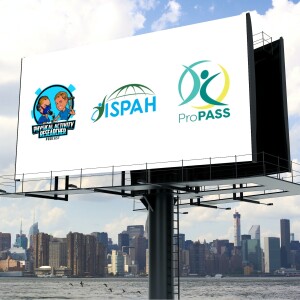
Wednesday May 25, 2022
Wednesday May 25, 2022
Audio of the ProPASS' 4th Annual Meeting 27-28 April 2022, Introduction by Professor Emmanuel Stamatakis - Setting up and expanding large international consortia of wearable devices data.
Physical Activity Researcher Podcast, ProPASS, and ISPAH collaborate to be able to bring you the events and webinars content in easy-to-consume audio format to your favourite podcast app.
The recording of this session is now available the Members Area of the ISPAH Website.
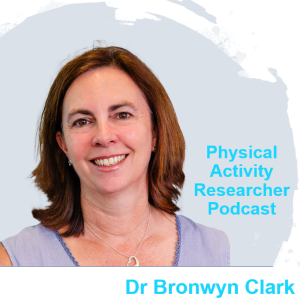
Tuesday May 24, 2022
Tuesday May 24, 2022
Dr Bronwyn Clark is an epidemiologist specialising in the field of measurement of physical activity and sedentary behaviour. She is currently working at the School of Public Health, The University of Queensland and holds a NHMRC Early Career Fellowship.
Dr Clark is interested in all aspects of measurement including self-reports and device-based methods, particularly for adult populations. She is currently working on projects to develop self-report measures of accumulation of sitting time and to use device-based measures to determine the context of sedentary and active time.
She has a particular interest in workplace health behaviour but also works with clinical and broader adult populations. She is currently a Vice President of the International Society for Measurement of Physical Behavior.'
------------------------------------
Learn more about ICAMPAM 2022 in Keystone, Colorado: https://ismpb.org/icampam/
Learn more about ISMPB: https://ismpb.org/
Here’s more info on virtual registration – visit ismpb.org for registration link:
YOUR ICAMPAM 2022 VIRTUAL REGISTRATION INCLUDES:
Access to the ICAMPAM 2022 Virtual Conference platform via the Whova App
On Wednesday 22 June (Time zone: MDT), one full day of livestreamed access of proceedings from Shavano Peak Meeting Room, including:
ICAMPAM Welcome
Keynote Speaker: Prof. I-Min Lee
Symposium: Spatial analyses with behavioral data
Sponsor Talks
Virtual posters session
Keynote Speaker: Dr. Jessilyn Dunn
Symposium: Physical Behaviors and Health: New Methods and Insights from Large Epidemiologic Studies Using Accelerometry
Oral Session: Novel statistical approaches and applications
-Not able to watch live? Recorded presentations from all ICAMPAM 2022 Keynote Speakers will be posted approximately 24hrs after the presentation and will be available for 90 days. Full program at a glance is available here.
-Access to all virtual poster sessions (2) and to all on-line poster listings. Poster listings include poster PDFs, abstract text, and author listing. Also, if provided, contact information and a brief video.
-Virtually connect and network throughout ICAMPAM 2022 with other leading and emerging researchers through the Whova App. Private instant messaging with presenters and fellow attendees (on-site and virtual) with the ability to create group chats. Take advantage of this for up to 90 days!
(WHOVA was used to great success at the ICAMPAM 2021 virtual conference).
Access to the interactive program scheduler to build your own custom program
An on-line program and abstract book
---------------------------------------
This podcast episode is sponsored by Fibion Inc. | The New Gold Standard for Sedentary Behaviour and Physical Activity Monitoring
Learn more about Fibion: fibion.com/research
---
Collect, store and manage SB and PA data easily and remotely -
Discover new Fibion SENS Motion: https://sens.fibion.com/
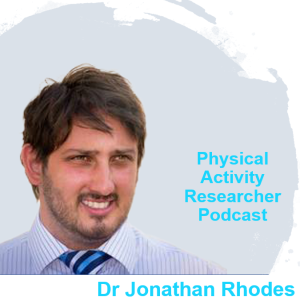
Sunday May 22, 2022
Sunday May 22, 2022
Motivational Interviewing and Imagery as Tools for Health and Fitness Professionals - Dr Jonathan Rhodes (Pt2) - Practitioner's Viewpoint Series
Jon Rhodes is a chartered psychologist, who alongside studying part-time for a PhD at Plymouth University, works closely with students on the University's Sporting Excellence Scholarship Programme and with several sporting bodies in and around Plymouth including the psychologist for Plymouth Argyle and the Sports Performance Manager at Plymouth Studio School.
Jon completed a BA (Hons) Sport Studies with Psychology at the University of Winchester, followed by a MSc in Sports Performance at Portsmouth University. He has worked in several aspects of sport, including physiology, strength and conditioning, but has most recently focused on psychology and helping athletes with their mental preparation for competition. His PhD with Plymouth University (supervised by Professors Jon May and Jackie Andrade) focuses on developing sporting resilience and grit through Functional Imagery Training.
Jon currently working with professional athletes developing character through functional imagery training.
---
This podcast episode is sponsored by Fibion Inc. | The New Gold Standard for Sedentary Behaviour and Physical Activity Monitoring
Learn more about Fibion: fibion.com/research
---
Collect, store and manage SB and PA data easily and remotely -
Discover new Fibion SENS Motion: https://sens.fibion.com/
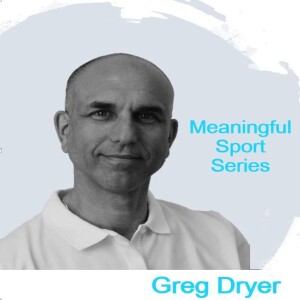
Friday May 20, 2022
Friday May 20, 2022
Physical Education is a contested domain in terms of what are the purposes of having it in our schools. Is PE about health, life skills, lifelong participation and/or other goals that we find worth pursuing? How can we support people's physical activity journeys in ways that movement activities support their life flourishing? These questions are at the heart of today's conversation.
I am really delighted to have Greg Dryer visiting the podcast for the second time. When we did our first podcast session in the autumn 2020, Greg was still the Director of the Centre for Physical Education, Sport and Activity at Kingston University. After our previous conversation, Greg has chosen to fully focus on working on the miMove app he co-founded in 2019. In the podcast, we catch up on what changed in Greg's work and how his thinking around meaningful PE has informed his work on the app.
The main contents of the conversation then include:
- Everyday physical activity and active transport as supporting life flourishing?
- "Life coaching" - problems and possibilities
- Digital tools: possibilities and challenges in supporting people in their physical activity journey
---
You can follow Greg and his work on miMove on Twitter @Greg_Dryer and @miMoveApp
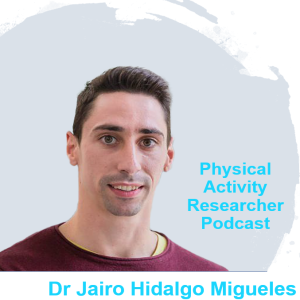
Tuesday May 17, 2022
Tuesday May 17, 2022
Accelerometer data analysis with GGIR software package - Dr Jairo Hidalgo Migueles (Pt1)
Dr Jairo H. Migueles studied Physical Activity and Sport Sciences (2009-2013) and a Research Master in Physical Activity and Sport at the University of Granada (2014-2015).
He is currently doing his doctoral thesis at the University of Granada with the ActiveBrains project (effects of a randomized controlled exercise program on cognition, mental and physical health in overweight and obese preadolescents).
His main areas of interest are:
Evaluation of physical activity, energy expenditure and sleep objectively through accelerometry.
Assessment of physical fitness in young population
Study of the effects of physical activity, physical exercise and sleep on different dimensions of physical, mental, cognition and brain health in young people.
Physical exercise interventions through the use of mobile phones (SmartPhones), which today is known as m-Health
---
This podcast episode is sponsored by Fibion Inc. | The New Gold Standard for Sedentary Behaviour and Physical Activity Monitoring
Learn more about Fibion: fibion.com/research
---
Collect, store and manage SB and PA data easily and remotely -
Discover new Fibion SENS Motion: https://sens.fibion.com/
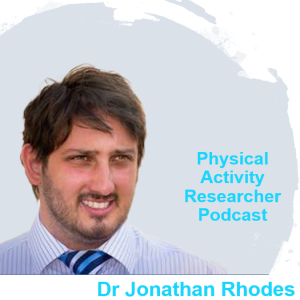
Sunday May 15, 2022
Sunday May 15, 2022
Jon Rhodes is a chartered psychologist, who alongside studying part-time for a PhD at Plymouth University, works closely with students on the University's Sporting Excellence Scholarship Programme and with several sporting bodies in and around Plymouth including the psychologist for Plymouth Argyle and the Sports Performance Manager at Plymouth Studio School.
Jon completed a BA (Hons) Sport Studies with Psychology at the University of Winchester, followed by a MSc in Sports Performance at Portsmouth University. He has worked in several aspects of sport, including physiology, strength and conditioning, but has most recently focused on psychology and helping athletes with their mental preparation for competition. His PhD with Plymouth University (supervised by Professors Jon May and Jackie Andrade) focuses on developing sporting resilience and grit through Functional Imagery Training.
Jon currently working with professional athletes developing character through functional imagery training.
---
This podcast episode is sponsored by Fibion Inc. | The New Gold Standard for Sedentary Behaviour and Physical Activity Monitoring
Learn more about Fibion: fibion.com/research
---
Collect, store and manage SB and PA data easily and remotely -
Discover new Fibion SENS Motion: https://sens.fibion.com/
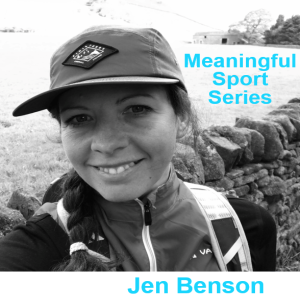
Friday May 13, 2022
Friday May 13, 2022
Every PhD journey is different and has a story behind it. In this episode, we explore the story of one PhD project exploring the challenging journeys of novice runners as they begin running and develop running identities from a phenomenological perspective. As exciting as the research is, however, the background journey is perhaps even more fascinating, including a year in a tent with a baby and a toddler.
I have the pleasure to discuss today with Jen Benson, a writer and an author of several guidebooks on adventures, running and walking, and a PhD student at Liverpool John Moores University.
Jen has recently published a book titled “The Wild Year” which tells the story of how she and her family spent a full year living in a tent in different parts of the UK. We explore this personal story in the first part of the conversation, and in the second part, we move on to exploring Jen's PhD project on becoming a runner.
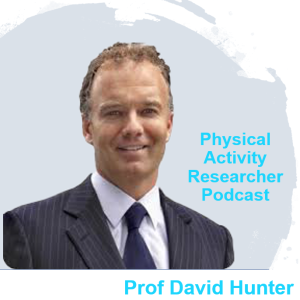
Tuesday May 10, 2022
Physical Activity and Joint Health - Prof David Hunter (Pt1)
Tuesday May 10, 2022
Tuesday May 10, 2022
Professor Hunter is a rheumatology clinician researcher whose main research focus has been clinical and translational research in osteoarthritis (OA). He is the Florance and Cope Chair of Rheumatology and Professor of Medicine at University of Sydney and the Royal North Shore Hospital.
He is ranked as the worlds leading expert in osteoarthritis on Expertscape.com since 2014. He is on the editorial board for Arthritis and Rheumatology, Osteoarthritis and Cartilage, Arthritis Care and Research and part of the review committee for OA for the American College of Rheumatology, EULAR and OARSI scientific meetings.
Dr Hunter has over 500 peer reviewed publications in international journals, numerous book chapters, is the section editor for UpToDate Osteoarthritis and has co-authored a number of books, including books on self management strategies for the lay public.
---
This podcast episode is sponsored by Fibion Inc. | The New Gold Standard for Sedentary Behaviour and Physical Activity Monitoring
Learn more about Fibion: fibion.com/research
---
Collect, store and manage SB and PA data easily and remotely -
Discover new Fibion SENS Motion: https://sens.fibion.com/
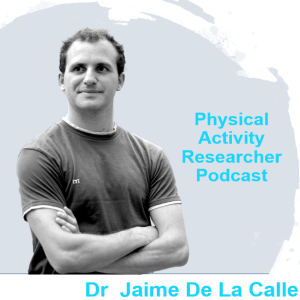
Sunday May 08, 2022
Sunday May 08, 2022
Dr Jaime de la Calle got his PhD in Exercise physiology and sport sciences at the Universidad de Castilla-La Mancha (2018-2021).
He is the founder and CEO at Sobre Rendimiento. Using this he is helping professional and elite athletes to reach outstanding results.
---
This podcast episode is sponsored by Fibion Inc. | The New Gold Standard for Sedentary Behaviour and Physical Activity Monitoring
Learn more about Fibion: fibion.com/research
---
Collect, store and manage SB and PA data easily and remotely -
Discover new Fibion SENS Motion: https://sens.fibion.com/
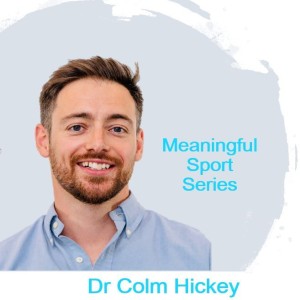
Friday May 06, 2022
Friday May 06, 2022
In this second part of our conversation with Dr Colm Hickey, we continue exploring the lives of professional footballers. We ask: how does athletes' relationship with sport change as they develop careers in high-performance sport? Is sport "just" work? We then move on to exploring the development of women's football and how organisations are supporting their career development. Finally, we discuss the concept of caring coaching and why working towards caring cultures is a meaningful task in professional sport.
Dr Colm Hickey shares his exciting research work involving professional athletes and sport organisations. To read more, see the article (co-authored with Martin Roderick) The presentation of possible selves in everyday life: The management of identity among transitioning professional athletes, and the book chapter (co-authored with Colum Cronin) Developing Caring Cultures in Football: A model for practice and change
Colm received his PhD at Durham University and currently works at the University of Lausanne. His research has explored various topics including workplace environments in sport, athletes’ career transitions and identity management. You can find Colm's contact details here and follow his work on Twitter @Colm_Hickey.
---
Liked this episode? See the related episode with Prof. Martin Roderick (on lives of professional footballers) here: Part 1, Part 2 and the episode with Colum Cronin (on caring coaching) here.

Tuesday May 03, 2022
Tuesday May 03, 2022
Ashokan Arumugam is an Assistant Professor of Physiotherapy at the College of Health Sciences, University of Sharjah, United Arab Emirates.
He is an Orthopedic Manual Physiotherapist with a special interest in physical activity analysis in sedentary and diseased populations, biomechanical analyses of the lower limbs, and neuroplastic changes in individuals with and without musculoskeletal ligament injuries.
------------------------------------
This podcast episode is sponsored by Fibion Inc. | The New Gold Standard for Sedentary Behaviour and Physical Activity Monitoring
Learn more about Fibion: fibion.com/research
---
Collect, store and manage SB and PA data easily and remotely -
Discover new Fibion SENS Motion: https://sens.fibion.com/
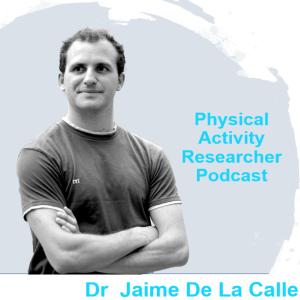
Sunday May 01, 2022
Sunday May 01, 2022
How to Market Your Sport Coaching Business?
Why Daily Monitoring is Crucial in Elite Sports?
Dr Jaime de la Calle got his PhD in Exercise physiology and sport sciences at the Universidad de Castilla-La Mancha (2018-2021).
He is the founder and CEO at Sobre Rendimiennto. Using this he is helping professional and elite athletes to reach outstanding results.
---
This podcast episode is sponsored by Fibion Inc. | The New Gold Standard for Sedentary Behaviour and Physical Activity Monitoring
Learn more about Fibion: fibion.com/research
---
Collect, store and manage SB and PA data easily and remotely -
Discover new Fibion SENS Motion: https://sens.fibion.com/

Friday Apr 29, 2022
Friday Apr 29, 2022
In today’s episode, we have another exciting conversation on athletes’ careers and lives in high-performance sport with a focus professional football. We know that the work-lives of professional athletes are uncertain and involve threats of de-selection and injury. What are the implications of the working conditions in professional sport for athletes' identity management, adaptation to career transitions, and the relationships they have in and outside of sport?
Dr Colm Hickey shares his exciting research findings involving in-depth interviews with professional athletes. To read more, see the article (co-authored with Martin Roderick) The presentation of possible selves in everyday life: The management of identity among transitioning professional athletes
Colm received his PhD at Durham University and currently works at the University of Lausanne. His research has explored various topics including workplace environments in sport, athletes’ career transitions and identity management. You can find Colm's contact details here and follow his work on Twitter @Colm_Hickey.
---
Liked this episode? See the related episode with Prof. Martin Roderick here: Part 1, Part 2.
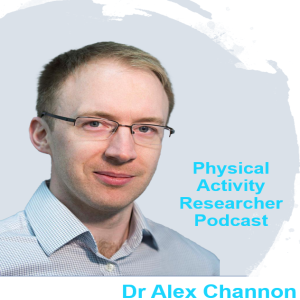
Tuesday Apr 26, 2022
How do Athletes Communicate Consent in Combat Sports? Dr Alex Channon (Pt2)
Tuesday Apr 26, 2022
Tuesday Apr 26, 2022
Dr. Alex Channon currently is a Senior Lecturer in Physical Education and Sport Studies at the University of Brighton, UK. He teaches on undergraduate courses, covering topics including sociological aspects of PE and sport, qualitative research methods, and UK PE and sport policy. He also supervises doctoral research students, conduct original empirical research, and act as personal tutor to undergraduate students.His research interests are focused on martial arts, particularly exploring issues related to gender and embodiment. Such research contributed to his PhD thesis, entitled 'Way of the Discourse: Mixed-Sex Martial Arts and the Subversion of Gender'. More recently, he has also explored the representation of women and sexual minority men in sports media.
He has edited three academic books: Global Perspectives on Women in Combat Sports (Palgrave Macmillan, 2015); Sex Integration in Sport and Physical Culture (Routledge, 2017); and Teaching with Sociological Imagination in Higher and Further Education (Springer, 2018). Alex sits on the advisory board of the Martial Arts Studies Research Network and is a member of the Special Advisory Group for the International Centre of Martial Arts for Youth Development and Engagement (ICM) under the auspices of UNESCO.
---
This podcast episode is sponsored by Fibion Inc. | The New Gold Standard for Sedentary Behaviour and Physical Activity Monitoring
Learn more about Fibion: fibion.com/research
---
Collect, store and manage SB and PA data easily and remotely -
Discover new Fibion SENS Motion: https://sens.fibion.com/
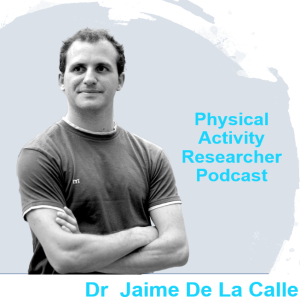
Sunday Apr 24, 2022
Sunday Apr 24, 2022
Dr Jaime de la Calle got his PhD in Exercise physiology and sport sciences at the Universidad de Castilla-La Mancha (2018-2021).
He is the founder and CEO at Sobre Rendimiento. His company is helping professional and elite athletes to reach outstanding results.
---
This podcast episode is sponsored by Fibion Inc. | The New Gold Standard for Sedentary Behaviour and Physical Activity Monitoring
Learn more about Fibion: fibion.com/research
---
Collect, store and manage SB and PA data easily and remotely -
Discover new Fibion SENS Motion: https://sens.fibion.com/
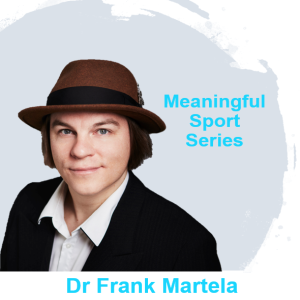
Friday Apr 22, 2022
Friday Apr 22, 2022
In this second part of our conversation with Dr Frank Martela we explore the concept of meaningful work and how it can inform researching meaningfulness in sport. Is meaningful work always a good thing, or could there be some detrimental effects if work has 'too much' meaning? Are athletes in a good position to find meaningful work?
Frank shares his work combining self-determination theory and meaningful work and findings from his empirical studies. From a practical perspective, we explore how to work with meaningful work in organisations, and finish up with some reflections on possible applications in the sport context.
Dr Frank Martela is a University Lecturer at Aalto University in Espoo, Finland and the author of the recent book A Wonderful Life: Insights on Finding a Meaningful Existence.
Research articles mentioned in this episode include Significant work is about self-realization and broader purpose: defining the key dimensions of meaningful work and What makes work meaningful? Longitudinal evidence for the importance of autonomy and beneficence for meaningful work
To find out more about Frank's work, visit his homepage, and follow the latest updates on Twitter @FrankMartela.
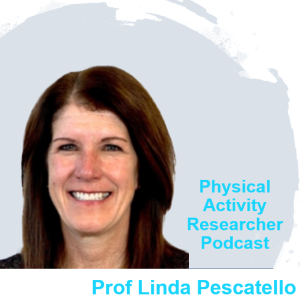
Tuesday Apr 19, 2022
Tuesday Apr 19, 2022
Dr. Pescatello is Distinguished Professor of Kinesiology at the University of Connecticut (UConn). She holds joint appointments in the Departments of Allied Health Sciences, Nutritional Sciences, and Physiology and Neurobiology at UConn, and the Department of Community Medicine and Health Care at the UConn School of Medicine.
Her research focuses on exercise prescription to optimize health benefits — particularly among adults with hypertension and overweight and obesity — and on genetic and clinical determinants of the response of health-related phenotypes to exercise, particularly blood pressure and muscle strength.
Dr. Pescatello was an associate editor of the eighth edition of the American College of Sports Medicine (ACSM) Guidelines for Exercise Testing and Prescription, is Senior Editor of the ninth edition of the ACSM’s Guidelines for Exercise Testing and Prescription, and recently served as an expert panel and writing team member on an update of the ACSM’s exercise pre-participation health screening recommendations.
She has authored over 150 manuscripts, 4 books, and 16 book chapters, and has had numerous grants funded by UConn, the American Heart Association, the National Dairy Council, NIH, and USDA. Dr. Pescatello has served in multiple leadership roles for ACSM.
Twitter handles of institutions:
@UConnCAHNR, @UConnResearch, @UConn
---
This podcast episode is sponsored by Fibion Inc. | The New Gold Standard for Sedentary Behaviour and Physical Activity Monitoring
Learn more about Fibion: fibion.com/research
---
Collect, store and manage SB and PA data easily and remotely -
Discover new Fibion SENS Motion: https://sens.fibion.com/
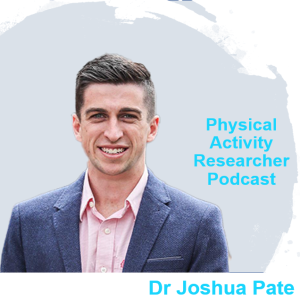
Sunday Apr 17, 2022
Sunday Apr 17, 2022
In his late twenties, Josh reduced his hours working as a senior physiotherapist to do a PhD at Macquarie University (Sydney, Australia). His fascination with factors that influence health outcomes for people feeling pain drove him deep into the world of trying to work out what people think about pain.
To begin to solve these mysteries, a tool was needed. So, he developed the Concept of Pain Inventory (COPI) and published it in 2020. Josh is passionate about making learning more accessible. He wants the next generation of humans to learn more of the complexity of the science of pain; a growing body of research is showing the importance of this education.
Since being awarded his PhD, he is working as a Lecturer in Physiotherapy at the University of Technology Sydney (UTS). Building learning resources like children’s books and online animations, he is researching how people think about the science of pain, and how that relates to their pain and level of disability.
---
This podcast episode is sponsored by Fibion Inc. | The New Gold Standard for Sedentary Behaviour and Physical Activity Monitoring
Learn more about Fibion: fibion.com/research
---
Learn more about Fibion Kids at:
https://fibion.com/kids
---
Collect, store and manage SB and PA data easily and remotely -
Discover new Fibion SENS Motion: https://sens.fibion.com/

Friday Apr 15, 2022
Friday Apr 15, 2022
Today's episode explores insights from the extensive literature on meaning in life and how it can help us explore meaning in sport and physical activity contexts. Dr Frank Martela shares his work on meaning in life and how people find meaning in contemporary secular societies. We also explore why pursuit of happiness and meaning might lead to opposite outcomes, and how sport and physical activity can contribute to meaningfulness.
Dr Frank Martela is a University Lecturer at Aalto University in Espoo, Finland and the author of the recent book A Wonderful Life: Insights on Finding a Meaningful Existence. To find out more about the book and Frank's work, visit his homepage, and follow the latest updates on Twitter @FrankMartela.
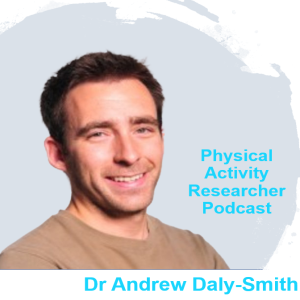
Tuesday Apr 12, 2022
Tuesday Apr 12, 2022
Dr Andy Daly-Smith is a reader in physical activity and healthy childhood. He leads the Wolfson centre for applied research health childhood theme. His research focuses on the design, development and evaluation of behaviour change interventions for physical activity and health in children. He is heavily involved in the Wolfson Centre for Applied Health Research and Born in Bradford as a Research Director on the Sport England funded Join Us: Move Play programme. Recently, Andy led the co-development of the first UK-based whole-school physical activity framework with 50 regional, national and international stakeholders. The model has been widely adopted across the UK to drive systems change for health and physical activity within schools. In May 2018 he co-delivered a TEDxEducation talk on physically active learning.
---
This podcast episode is sponsored by Fibion Inc. | The New Gold Standard for Sedentary Behaviour and Physical Activity Monitoring
Learn more about Fibion: fibion.com/research
---
Collect, store and manage SB and PA data easily and remotely -
Discover new Fibion SENS Motion: https://sens.fibion.com/
---
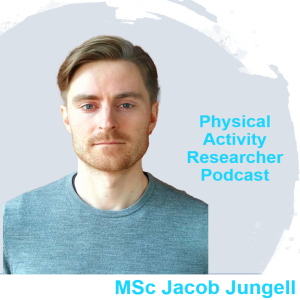
Sunday Apr 10, 2022
Sunday Apr 10, 2022
Jacob Jungell got Master’s degree of Exercise Physiology in University of Jyväskylä. He has then worked as Project Worker and Lecturer in Arcada Univeristy of Applied Sciences, in Helsinki Finland. Currently he is working as a Teacher in Solvalla Sports Insitute and as Performance Coach in Hintsa Performance.
------------------------------------
This podcast episode is sponsored by Fibion Inc. | The New Gold Standard for Sedentary Behaviour and Physical Activity Monitoring
Learn more about Fibion: fibion.com/research
---
Collect, store and manage SB and PA data easily and remotely -
Discover new Fibion SENS Motion: https://sens.fibion.com/
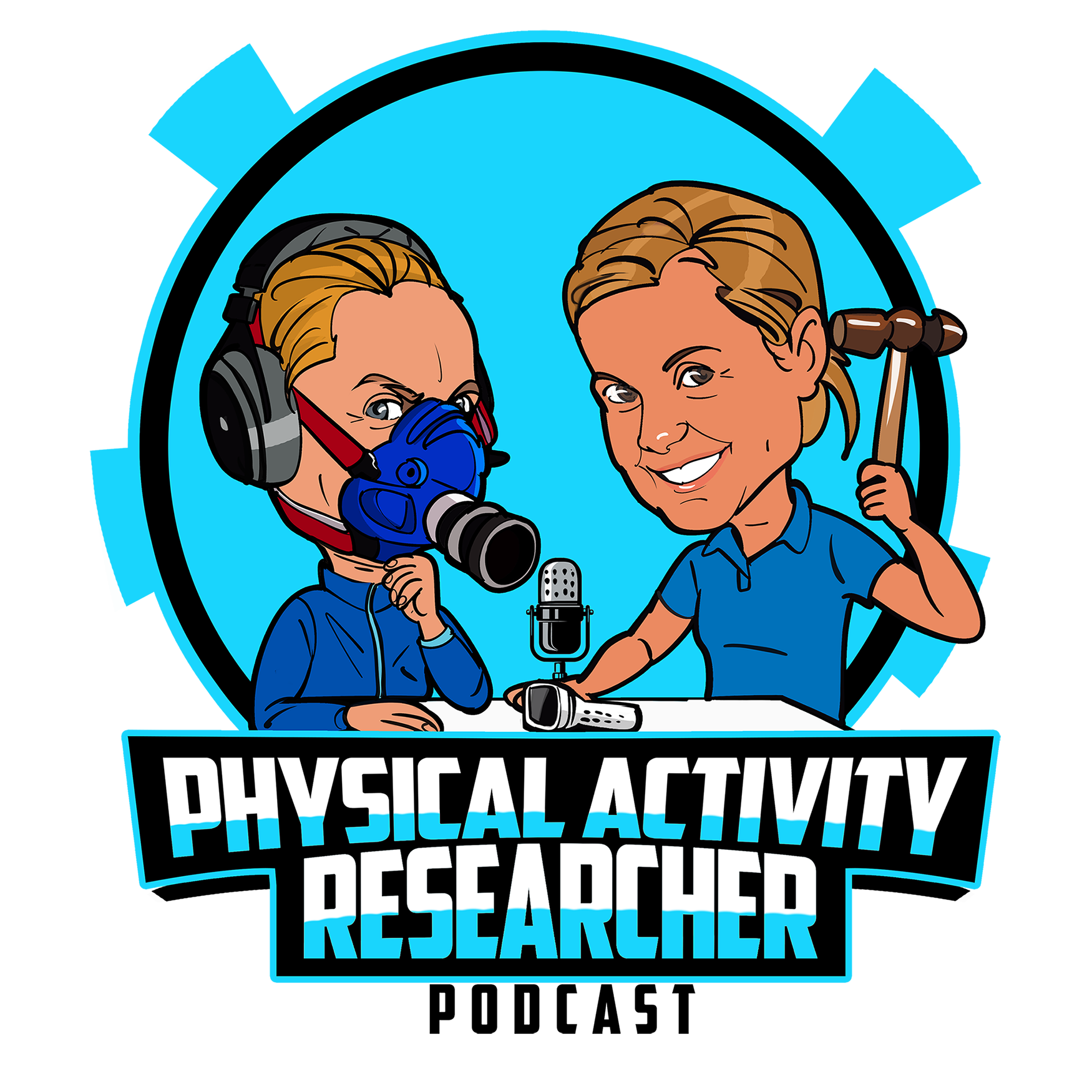
Hello and Welcome to Physical Activity Researcher Podcast!
Physical Activity Researcher Podcast is the source of the latest research findings on all things related to physical activity, exercise, and health. World-renowned scientists and experts as guests in an informal and relaxed interview style format. The podcast is for anyone who likes to learn scientific and evidence-based knowledge of physical activity, exercise, and health.
Physical Activity Researcher Series
The latest research findings in exercise physiology, physical education, coaching sciences, sport psychology, epidemiology, and public health.
Meaningful Sport Series
Meaningful Sport is dedicated to the exploration of meaning and meaningful experiences in sport and physical activity.
Practitioner’s Viewpoint Series
Practitioner’s Viewpoint Series has health and fitness professionals as guests. This series is for you if you are a Personal Trainer, Physiotherapist, Medical Doctor, Health Coach, or anyone working as a health and fitness professional.
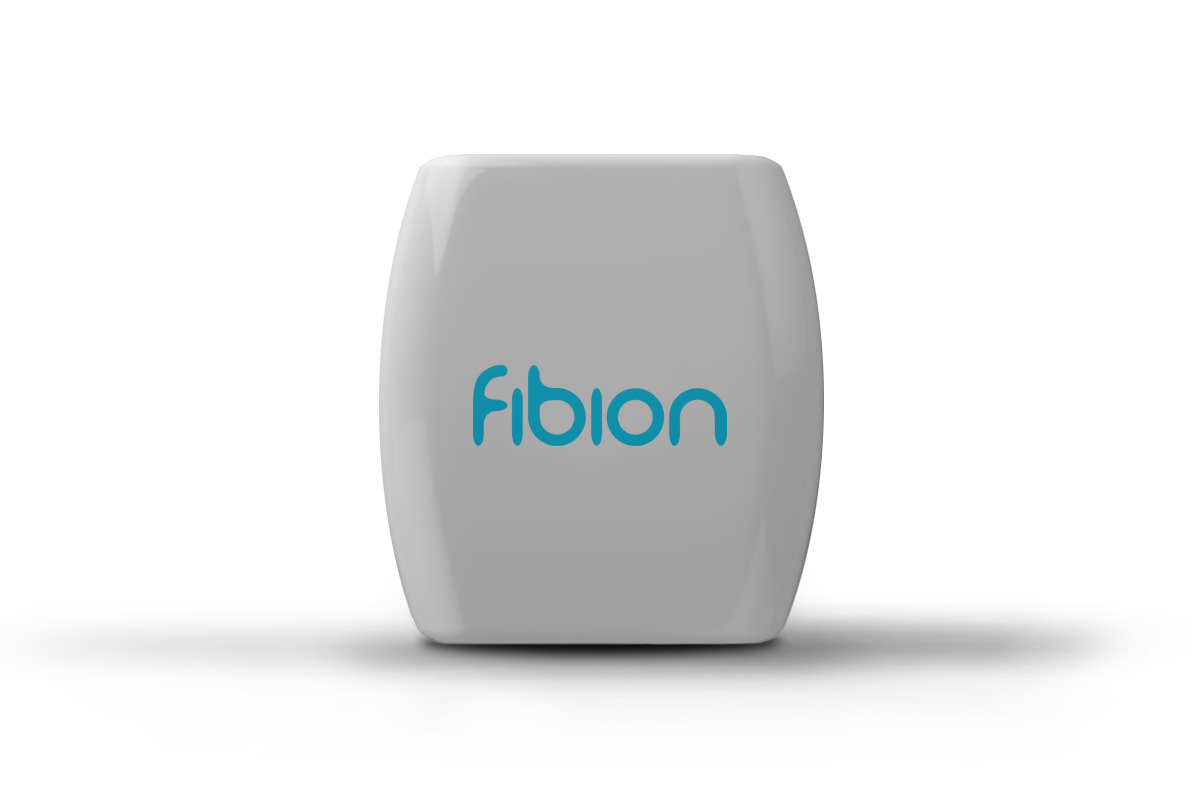
Podcast brought to you by
Fibion
Fibion is the new gold standard for sedentary behaviour and physical activity data collection for researchers. Cloud-based modern solutions make data collection easier than it has never been.
---
Fibion Pro is the first physical activity analysis product targeted from the beginning for health and fitness professionals. It is accurate and easy to use in connection with professional consultation meetings.
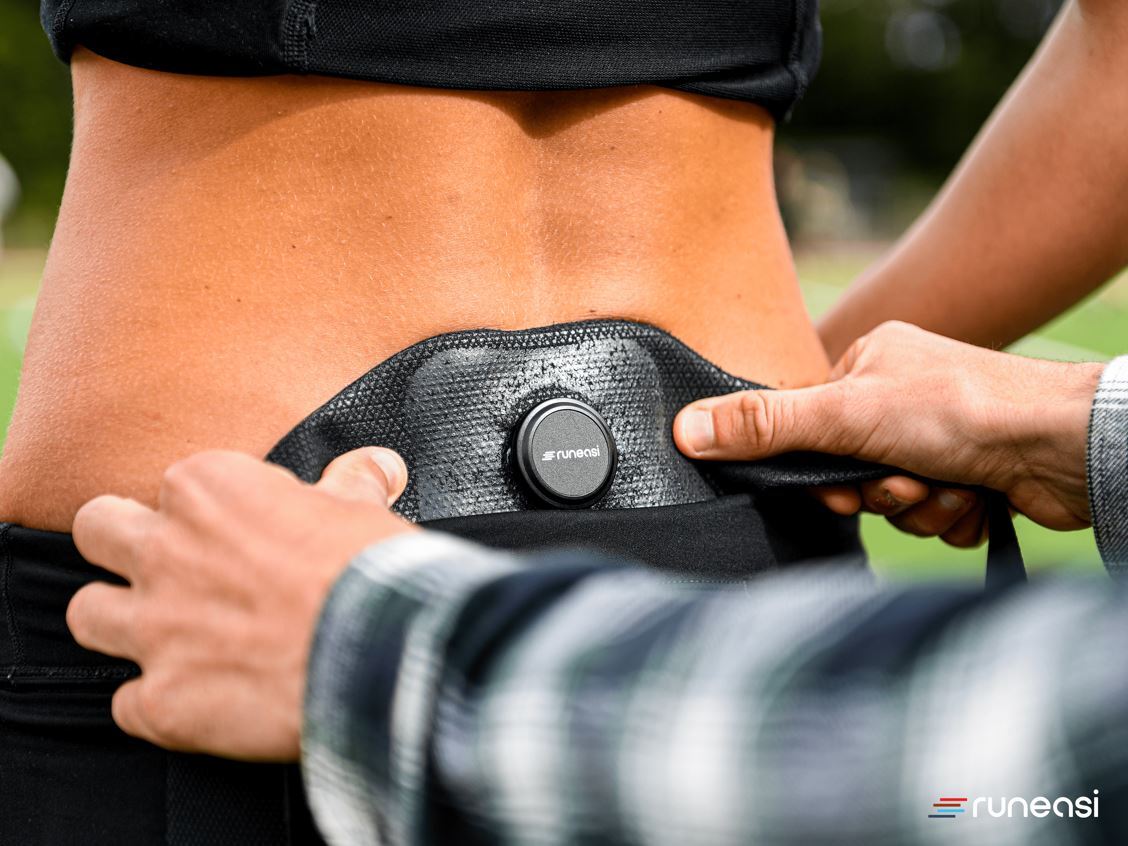
Practitioner's Viewpoint Series Brought to You by
Runeasi
Enabling value-based gait analysis for athletes with musculoskeletal conditions.
1. ASSESS
Runeasi’s real-time functionality gives you immediate and objective visual feedback about how well your patients are moving. Hence, you can immediately identify problem areas, weak links, or poor running technique.
2. ANALYZE
Test your verbal cues out on your patients as you guide them through rehabilitation and return to play/sport. Correct with confidence and surety in knowing what works for them.
3. ADDRESS
Help your patients emerge stronger than ever by giving personalized feedback on important technical parameters like impact asymmetry. Runeasi will help you improve your patients running technique and their ability to achieve your sporting goals!
Learn more: https://runeasi.ai
Book a free demo: https://calendly.com/runeasi/30min






